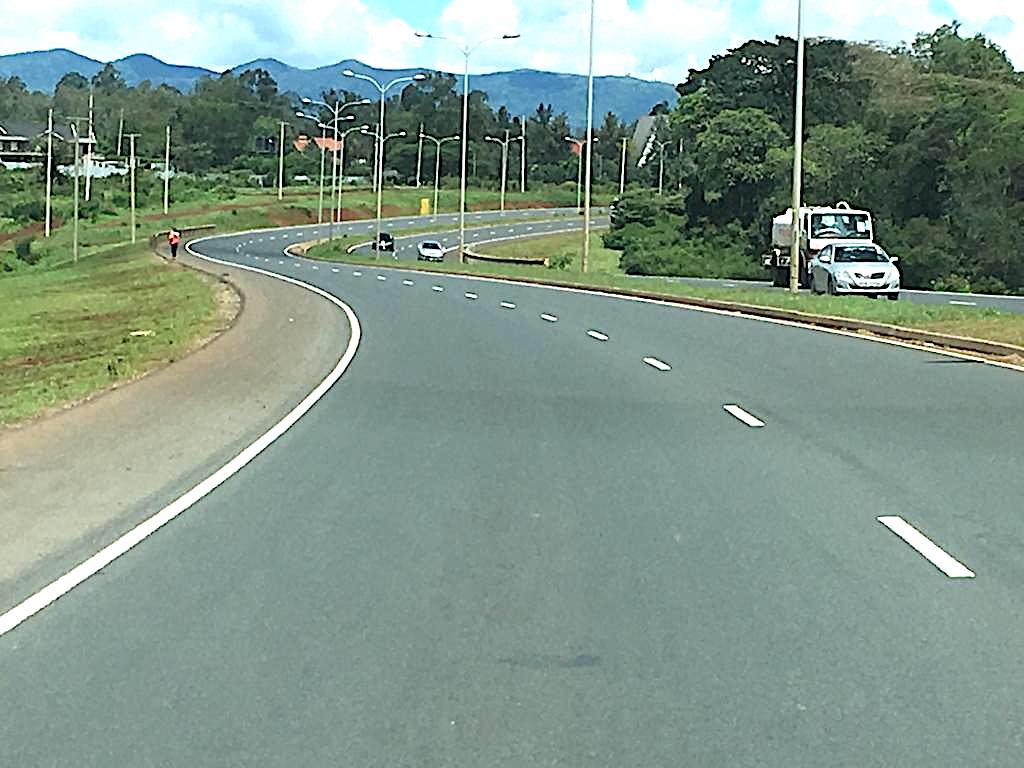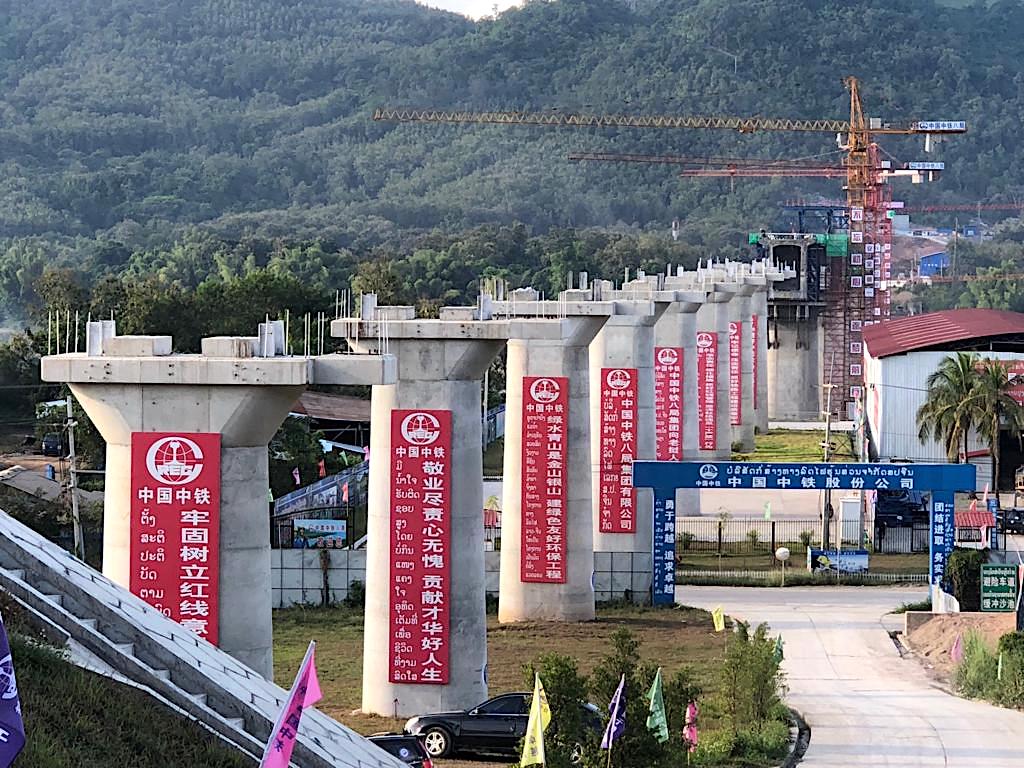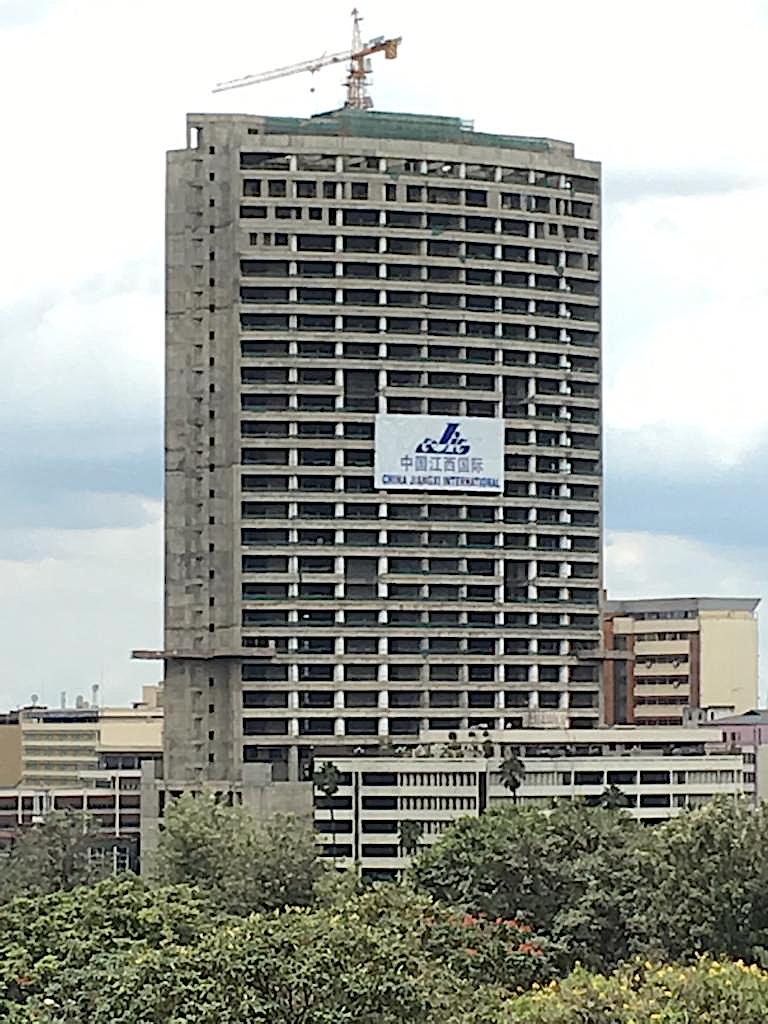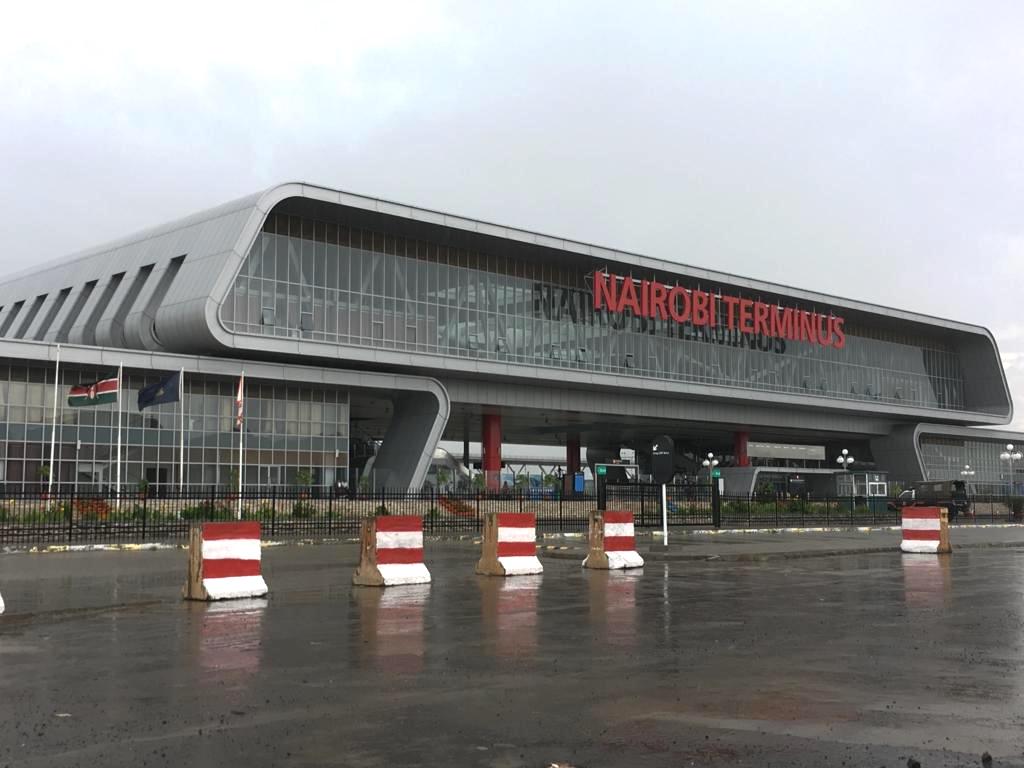Belt and Road Forum in Beijing and How Western ‘Reports’ Are Smearing China
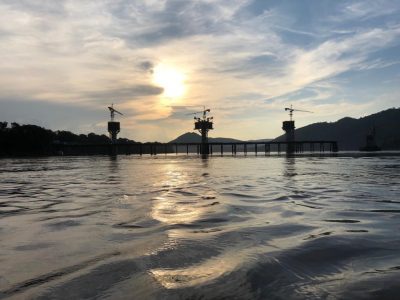
The second Belt and Road Forum for International Cooperation is about to open in Beijing. It will take place from 25 th to 27th April, 2019. The Chinese President Xi Jinping is expected to deliver the keynote address.
It is expected to be an event of tremendous proportions and importance: leaders from 37 countries will participate, including Russia’s President Vladimir Putin and President Duterte of the Philippines. Beijing will host 5,000 guests from 150 countries, as well as 90 international organizations.
The Belt and Road Initiative (BRI) has already been reshaping the world, fundamentally. Previously at the mercy of the Western imperialist powers, their armies, propaganda apparatuses and brutal financial institutions; Africa, the Middle East, Central and Southeast Asia have suddenly discovered that they have alternatives and choices. For various parts of the world, decades and centuries of stagnation and humiliation under colonialist and post-colonialist regimes have begun to come to an end. Entire nations have been freeing themselves, realizing their great hidden potential.
All this because of BRI; because of China as well as its close ally, Russia.
Entire huge railroad projects in East Africa as well as in the once devastated Laos (devastated by the insanely brutal Western carpet-bombing campaigns, which are still called a “Secret War”) are now connecting continents. Along the railway lines, schools are growing, and so are medical facilities, community learning centers and cultural institutions.
Africa – BRI. New China-built highway
The BRI is not only about the economy, not only about infrastructure and development, it also about the well-being of the people, about the culture, health and knowledge. It is aiming at connecting people of different races, life philosophies, and beliefs.
And the rulers in the West are horrified. Nothing outrages them more than the prospect of losing absolute control over the world. For them, it is not (and never was) about improving the lives of hundreds of millions of impoverished people. They had centuries of absolute power over the planet, and all they did was to enrich themselves, murdering and robbing in all corners of the globe. For them, it is about ‘winning or losing’, about maintaining its colonies and ‘client’ states; by all means, even by the most brutal ones.
For China, (through BRI), it is all about spreading wealth everywhere. The firm belief in Beijing was and is: If the world is doing well, China will prosper, too.
*
And so, in Washington and London, and in so many other centers of Western might, thousands of ‘professionals’ are now employed and busy smearing China and its most ambitious international (and internationalist) projects. Smearing and spreading nihilism is an extremely well-paid job, and for as long as China is rising and the West declining, it appears to be a permanent one. There will be no deficit when it comes to funding all those anti-Chinese ‘academic reports’, fake analyses and articles. The more of them, the better; the more ridiculous they get, the better remunerated they are.
Take this one, for instance: “Grading China’s Belt and Road”.
With all those footnotes and ‘references’, it looks professional and academic. It can impress millions of China-phobes and China-bashers in Europe and North America. Suffering from complexes of superiority and “Yellow-Peril mentality”, they are searching for, and then welcoming all vicious attacks against Beijing and its initiatives.
Look closer, and it is ‘reports’ like this that are clearly nothing more than thinly disguised propaganda work ordered by those who are aiming at discrediting China and its internationalist efforts.
In its Executive Summary, the report states:
“Since its launch in 2013, what China calls “One Belt, One Road” has emerged as the corner- stone of Beijing’s economic statecraft. Under the umbrella of the Belt and Road, Beijing seeks to promote a more connected world brought together by a web of Chinese-funded physical and digital infrastructure. The infrastructure needs in Asia and beyond are significant, but the Belt and Road is more than just an economic initiative; it is a central tool for advancing China’s geo-political ambitions. Through the economic activities bundled under the Belt and Road, Beijing is pursuing a vision of the 21stcentury defined by great power spheres of influence, state-directed economic interactions, and creeping authoritarianism.1
As Beijing prepares to host the second Belt and Road Forum in late April 2019, countries that once welcomed Chinese investment have become increasingly vocal about the downsides. This report is intended to serve as a resource for governments, corporations, journalists, and civil society groups now re-evaluating the costs and benefits of Belt and Road projects…”
In brief, it is propaganda; anti-Chinese propaganda, anti-Communist (or call it ‘anti-central-planning- propaganda).
It is also a tool for all those who are ready to criticize China, defining its marvelous efforts as a ‘debt trap’, among various other derogatory terms.
A leading academic at the University of the Philippines (U.P.), Roland G. Simbulan, agreed to analyze the origin of the CNAS report for this essay:
“The April 2019 Report “Grading China’s Belt and Road” by the Center for a New American Security (CNAS) seems to be one of the latest findings and studies of American conservative think tanks which are in fact aimed at discrediting China’s economic thrusts through China-financed infrastructure, land and sea transport, investments, etc. These are China’s answer to the U.S.’ global military build-up and encirclement of its fast rising rival superpower. China is trying to avoid the mistakes of the Western powers including the U.S. and the former USSR by not engaging in a tit for tat arms race. Instead, it is answering back with its Belt Road Initiative as well as other economic and market initiatives aimed at reinforcing China’s strengths while avoiding a direct attack on where the U.S. is strongest and has more advantage: the U.S. global military forces.
It is obvious from the backgrounds of the CNAS fellows who are authors of the report that they are all connected with the U.S. Department of Defense, the U.S. Department of State and the U.S. National Security Council. The American Enterprise Institute is a quasi-U.S. federal government think tank composed of recycled officials of the U.S. Department of Defense and U.S. Department of State. It is also obvious that they have consolidated the economic and political reports of all the U.S. intelligence community which are coordinated by the U.S. National Security Adviser.”
And obviously, CNAS is not hiding where it stands, ideologically. It quotes such right-wing warriors as the French President, Emmanuel Macron, the International Monetary Fund Managing Director Christine Lagarde, the Minister of Energy in the defunct and discredited Ecuadorian government, Carlos Perez, and other unsavory figures.
Roland G. Simbulan continues:
“While the CNAS Report may indeed have identified some of China’s vulnerabilities in the management of its China-funded projects which can easily merit criticism, i.e., sovereignty eroding, non-transparent, unsustainable financial burdens, locally disengaged, geopolitically risky, environmentally unsustainable, and corruption-prone), let us remember that China’s BRI was only launched in 2013. The U.S. and its Western Allies, including the multilateral institutions that they have created to assure U.S. neoliberal control of national economies since 1945 have engaged in practicing these “challenges” and dangers that it accuses China of initiating through BRI projects “for China’s geopolitical ambitions.”
These may be valid as in the case of the 10 case studies identified by the CNAS Report. But it is too soon to make conclusions in such a short time from 2013-2018. For these are also practices that have long been inflicted by the U.S. Empire and its allies since the end of World War 2 to assure economic, political and military hegemony. Unintentionally, the seven (7) challenges or dangers of China’s BRI identified by the CNAS are really challenges that are continually being inflicted by the U.S. Empire and its Western allies on weaker and smaller countries. Precisely, many countries in Asia, Africa and Latin America are turning towards alternative international institutions such as ALBA in Latin America and BRI BECAUSE of the onslaught that they have long experienced with the PAX AMERICANA i.e. the U.S. and its allies.
Can the CNAS show that their sponsors and patrons are doing better, or can do better? The best way for the U.S. to counter the Belt Road Initiative (BRI) is to show AND prove that they can offer a better deal with developing countries in need of assistance for their infrastructure and development projects.”
*
Mr. Sidqy LP Suyitno, an Indonesian high government official and former State Finance and Monetary Analysis Director of the Ministry of National Development Planning, is also puzzled by some of the wording in the report. When asked about the BRI project to build the bullet train from the Indonesian capital Jakarta to its city of Bandung, he contradicted the report:
“Geopolitically Risky? It seems NOT to be. It seems more like making bilateral relations with Japan uncomfortable. The Japanese have been enjoying the benefits when it comes to relations with Indonesia, ever since Suharto’s dictatorship: the automotive industry is more like an oligopoly for Japanese cars in Indonesia. And what do we get back? We still don’t have our own car industry, our national car or our own national motorcycles production. Even though we have a very large “captive market”; in 2018, 1.1 million cars & 6.5 million motorcycles were sold in Indonesia.”
Apparently, what he is referring to, is that while Japanese car industry flooded Indonesia with its cars and badly polluting scooters, there were no benefits to the state or to the people of Indonesia. I can go much further and point out that according to my investigation, Japanese car industry corrupted the government officials in most of the Southeast Asian countries, “convincing them” not to build public transportation, instead choking both cities and the countryside with outdated models of private motor vehicles, consequently bankrupting citizens in the process.
In brief: Japan has managed to ruin Southeast Asian cities, preventing them from developing public transportation. And now should it be trusted in such places like Indonesia to develop a high-speed rail system? Indonesia, Laos and Thailand do not think they should trust Japan too much. They trust China much more. And the same goes for the Philippines. Malaysian Prime Minister, Mahathir Mohamad, when re-elected last year, stopped several high-profile projects with China, but now, it seems, has been discovering an appetite for cooperation with Beijing.
Laos – BRI project. China building high-speed train
But the report speaks (using unacademic language, suddenly) about how China poached the high speed train project from the Japanese.
Professor Mira Lubis, from Tanjungpura University in Pontianak, West Kalimantan, Indonesia, stated for this essay, her hope that BRI could improve life and environment on her devastated island:
“From what I know about BRI, I believe that its efforts would be mutually beneficial for both Indonesia and PRC. In Southeast Asia, the focus of BRI will be what could be described as the Maritime Silk Road. Indonesia is an archipelago with over 17,000 islands. Since 2014, our government is aiming at transforming Indonesia into what it calls the ‘Global Maritime Axis’. It means, developing ports and shipping lanes among other vital projects. This would be in synergy with BRI; BRI could strengthen Indonesia as a maritime power.
My island, Borneo, is ecologically damaged. I hope that it could directly benefit from the cooperation with China and its BRI. China is at the forefront of the struggle for ecological civilization, and I believe in its wisdom. I’m optimistic that BRI might help tobring sustainable development to Borneo.”
*
The CNAS report is ‘all over the place’, selectively attacking BRI and China for its involvement in Africa, South and Southeast Asia, the Middle East and South Pacific (Oceania).
In his essay “China’s road to a win-win ahead of BRI forum”published by the Asia Times, renowned Brazilian analyst Pepe Escobar wrote:
“Relentless reports that the New Silk Roads, or the Belt and Road Initiative (BRI), are a perfidious neo-imperial debt trap set up by Yellow Peril 2.0 are vastly exaggerated.
Beijing clinched a proverbial showering of BRI deals with 17 Arab nations, including Egypt, Lebanon and Oman. Not by accident, the forum this year was called Build the Belt and Road, Share Development and Prosperity. Up to 2018, 21 Arab nations had signed BRI memoranda of understanding.
These nations are not only BRI partners, but 12 of them also went for strategic partnerships with China…”
Little wonder why!
Say China or BRI in Africa, just pronounce those names, and most of the people will show great enthusiasm. Every, even the Western surveys, clearly indicate that all over the continent, people harbor extremely positive feelings forwards China.
In Kenya (where I used to live), I repeatedly heard those who were working on countless Chinese projects, repeat:
“This is the first time we are treated by the foreigners like human beings.”
Kenya – BRI. New government building in Nairobi
People in Europe and North America love to adopt ‘politically correct speech’, but words somehow do not translate into deeds. Chinese workers may sometimes be rough, but they treat Africans like brothers and sisters. They also try to compensate them as if they would be their own.
But the CNAS report only criticizes China’s involvement in Africa, while African voices are rarely allowed to penetrate the uniform and dogmatic Western mainstream media.
An influential Ugandan analyst and opposition figure, Arthur Tewungwa, wrote for this essay:
“The basic assumption of Africans is that they are stupid and ignorant of history, politics, and the global financial arrangement of the world. The scaremongering of Chinese global domination does not really wash on a continent that is still under a sustained attack from the very forces that led us into slavery, colonialism and its manifestation, neo-colonialism. Using the Ugandan opposition’s criticisms of the government’s (a staunch ally of the US and its regional sheriff) misuse and theft of Chinese aid while ignoring the fact that the same has been going on for the last 30 years with IMF and World Bank funds which the opposition has been criticizing, confirms that assumption.
Ugandans don’t view China as a dangerous hegemon; they are still too busy trying to extract themselves from the current relationship with hegemon that has had its boot on the country’s neck for the last 300 years. The opposition criticism was aimed at the conduct of America’s principal, not the misrepresented intentions of China. The IMF and World Bank have not covered themselves in glory in Africa and ignoring that fact just plays more into China’s hands.”
*
In the South Pacific (Oceania) where I also spent several years of my life (writing a book about the plight of Melanesia, Polynesia and Micronesia), CNAS dishonestly criticizes the BRI project in Vanuatu.
Let me be brutally frank here: The West has almost ruined the entire Oceania by its unbridled consumption, by neo-colonialist policies; from the Solomon Islands to the Marshall Islands. Global warming has caused the near disappearance of such wonderful countries like Kiribati, Marshall Island and Tuvalu.
What has the West done to save them? Nothing! Just dumping junk food on Samoa and Tonga, on the Federated States of Micronesia, or on the Marshall Islands (RMI).
China has patiently and full-heartedly been trying to help: by planting mangroves, building anti-tsunami walls, elevating government offices, schools and medical posts up on stilts. It has built stadiums in order to improve the health of the desperately obese local population (on some islands, around 90% of the population are suffering from diabetes).
And what has the West done, after observing the great success of China? It went to Taiwan, and as the former Minister of Foreign Affairs of the RMI, Tony de Brum explained to me, began ‘encouraging Taipei’ to bribe local governments, so they would recognize Taiwan as an independent country; something that even the West has not done. As a result, predictably, Beijing was forced to break diplomatic relations and to withdrow its help. The result: Taiwan has done nothing for Oceania. Only the ordinary people in South Pacific have become the victims.
Those South Pacific countries that ‘stayed with China’ are doing incomparably better. Why don’t we hear about all this, from the West-sponsored reports? Why do we only read dirt, as well as nihilist speculation? Why not facts? Why not the truth, that it is the West that is destroying the world, and has been for decades and centuries?
*
BRI is not perfect, yet, but on the global scale, it is the best that humanity has right now. And it has been improving, month after month.
Ugandans had 300 years of horrors of ‘Western democracy’ and ‘freedom’. Latin Americans have been beaten into submission for over 500 years.
Kenya – BRI. New moder train terminal in Nairobi
In Washington, London and Paris, they love to say: “we are all the same”. Such ‘logic’ washes out their crimes. It means: “everyone is as greedy and brutal as we are”. But no, we are not the same! Cultures are different, on all corners of the globe. Some countries are expansionist, aggressive and obsessed with self-righteousness as well as complexes of superiority. Some are not. China is not. It never was. It never will be. If attacked or antagonized, it defends itself; and if threatened in the future, it will defend itself again. But it does not build its wealth on plunder, and on the corpses of the others, as the West has been doing for long centuries.
BRI is the exact contrast to the Western colonialism and imperialism. I say it not because I am defending some theory on these pages, but because I have seen the Chinese ‘New Silk Road’ in action, in places where I have lived and worked: Asia, the Middle East, Oceania, Latin America and Africa. In places where almost no one dares or cares to go: except for those few tough and ‘insane’ individuals like myself, and for the Chinese internationalists! I know such places intimately. Places where local people are almost never given an opportunity to speak; they never appear on the pages of the Western mass media, or on television screens, or in reports such as the one published by CNAS.
Until recently, their voices and lives mattered nothing. Now they do. They matter a lot.
These people exist; these people are alive; they want to breath, to live and to dream. I swear they do. And for them, especially for them, now exists the BRI!
*
Note to readers: please click the share buttons below. Forward this article to your email lists. Crosspost on your blog site, internet forums. etc.
Andre Vltchek is a philosopher, novelist, filmmaker and investigative journalist. He has covered wars and conflicts in dozens of countries. Four of his latest books are China and Ecological Civilizationwith John B. Cobb, Jr., Revolutionary Optimism, Western Nihilism, a revolutionary novel “Aurora” and a bestselling work of political non-fiction: “Exposing Lies Of The Empire”. View his other books here. Watch Rwanda Gambit, his groundbreaking documentary about Rwanda and DRCongo and his film/dialogue with Noam Chomsky “On Western Terrorism”. Vltchek presently resides in East Asia and the Middle East, and continues to work around the world. He can be reached through his website and his Twitter.
All images in this article are from the author; featured image: Laos – BRI. Bridge over Mekong River for high-speed train


